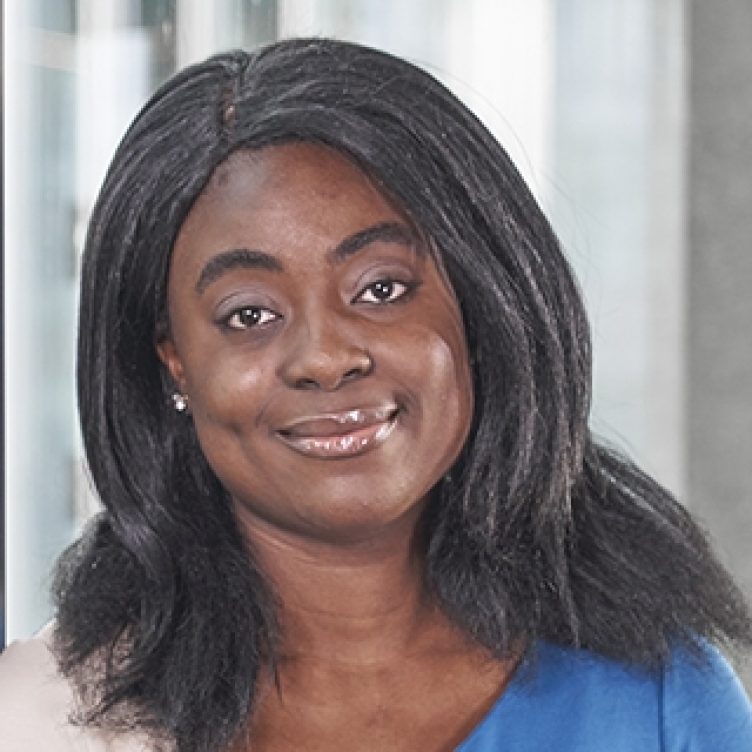The Civil Litigation Section interviewed Senior Associate Natalie Osafo in our Commercial Litigation team and Partner and Head of International Arbitration Philippa Charles about their experience as a solicitor advocate, and how they’ve used the skills they acquired beyond the courtroom
Many litigators choose to apply for higher rights of audience, which give you the same rights to appear and conduct proceedings in court as a barrister. What does the process involve, and how can the qualification help in day-to-day litigation work?
Why did you decide to apply for higher rights of audience?
Philippa: I went through the process in 2002–3, at the instigation of an enlightened leadership team at my then firm (Mayer Brown) which considered that training for higher rights should be a formative part of junior lawyers’ development, even if we never planned to get on our feet. As it happened, it turned out that I really enjoyed the process (in the same way that one enjoys anything terrifyingly exhilarating), so I then sought out opportunities to use those skills in practice.
Natalie: I applied in 2017, when I was an associate with about two years’ of post qualification experience (PQE) in the dispute resolution group at Slaughter and May.
I applied for higher rights because there is a saying that you need to walk in someone else’s shoes to really understand them and – I would add – to work effectively with them. I regularly work with barristers and lawyers from legal jurisdictions where there is no distinction between the solicitors and advocates on cases and the lawyers carry out both roles, so I considered that the course would be a good way to get an “insider view” into the work of advocates generally, as well as into court advocacy.
I had also previously explored a career at the Bar: undertaking mini-pupillages, shadowing barristers, and I was involved in debating and public speaking at university and during my school days. A part of me always wondered what it would have been like to delve further into the barrister side of the profession. The course was a way to satisfy my curiosity.
What steps did you take to qualify as a solicitor advocate?
Natalie: I completed the Higher Rights of Audience course at The University of Law (Moorgate). The course was taught by an experienced barrister and comprised a number of interactive classes to prepare you for the written and practical assessments that you’re required to complete by the Solicitors Regulation Authority.
The course covered more than just oral advocacy. We learnt about case analysis methodologies, how to examine witnesses and experts effectively, and how to deliver compelling submissions to advance your case.
The process took about five to six days to complete, spread out over a two- or three-week period.
What did you find the biggest challenge (either in gaining higher rights of audience, or in exercising these in a court setting)?
Natalie: Going back to the classroom after being away for a few years, and watching myself back on video delivering advocacy! Seriously, it was a valuable, well-taught course and very practical. The sessions were run in small groups with solicitors from different law firms. We would work together to apply the skills we had learnt during class and give feedback to each other.
Much of the course content was relatable and familiar to the work that I undertake as a solicitor on commercial dispute cases – except from the perspective of an advocate on the case. In a sense, it was like seeing the other side of the same coin but with new elements. It left me with a more complete picture of the symbiotic partnership between solicitors and barristers in litigation.
Philippa: By far, I’ve found the biggest challenge is deploying the skills “in real life”, on behalf of a client and in front of a judge or other tribunal (in my case it has mainly been in arbitration settings). The ability to get one’s points across effectively and not be intimidated by the experienced barrister on the other side of the room is part of it; the other aspect is diarising the right preparation time and using it effectively. As a solicitor advocate, one is very often running the day-to-day bits of the case and the client interaction, as well as undertaking the advocacy. It’s hard to carve out dedicated preparation time and focus on the case presentation: but that preparation is utterly critical to the prospects of your approach being successful.
How has your time as a solicitor advocate differed from your expectations?
Philippa: I haven’t had as many opportunities as I would have anticipated to use my skills in full hearings (though I have undertaken several, including with witness cross-examination), but I have done a lot of interlocutory work. I’ve also found the skill set immensely helpful in the context of mediation, where I’ve been deployed to present aspects of my client’s case to the other party as a way to try to open up a dialogue on road-block issues.
What is interesting about the latter form of advocacy is that it happens at really short notice. You’re largely trying to speak to the other side’s lay client in a persuasive way, so it’s using the training without the benefits of a full script or reliance on the sorts of expression you would use when addressing a tribunal – I’ve usually gone in with three to five bullet points and winged it from there!
Natalie: I’ve used my advocacy skills in different settings outside of the courtroom, for example, to advocate on behalf of clients during settlement meetings and through written advocacy in inter partes correspondence. I’ve also applied the case analysis and other skills gained on the course when preparing or inputting on court documents. It has also heightened my awareness and appreciation of how barristers work and what they require to prepare effectively for oral advocacy at hearings.
What do you wish you’d known, before starting the process?
Philippa: I wish I had known how useful it would be to have the grounding in civil procedure and the rules of evidence: I complained endlessly about it at the time but can still dredge up things I learned on that course in practice today. I also wish I had been less worried about presenting in front of my fellow-students who were my colleagues. They were probably the kindest and most supportive audience I will ever have…
What has been the most useful advice you’ve received on becoming or practicing as a solicitor advocate?
Philippa: I’ve learned so much by observation and then adopting the tactics of the great advocates with whom I have worked: seeing what works with judges and tribunals and, in particular, seeing what makes for a great cross-examination, which is probably the most challenging part of any hearing as advocate.
In the era of virtual hearings, I’ve been reading and listening to the experiences of other advocates to assess what may change in the way cases are presented in that format. There are many additional challenges for the advocates in those hearings, including the technology, but also potential changes to the advocacy in order to ensure that communication is clear and effective.
Natalie:
- For the higher rights course, there were exercises to complete and assessments to prepare for. Make sure you factor in setting aside time for these, outside of the classes.
- A judge recently advised me to “do more advocacy”. So, once you are qualified and if you are able to, just do it.
- Apply the skills that you gain on the course as much as possible. In particular, one piece of advice shared with me in this regard is that there are opportunities (particularly for junior lawyers) to conduct advocacy in court on pro bono cases.
What advice would you give to litigation practitioners considering this path?
Philippa: It’s invaluable training: not just to hone your technical skills but to develop an additional layer of discernment, which comes with analysing a case as the advocate presenting it. And it’s really fun: there’s nothing quite like winning a case where you did the talking!
What’s your next goal? (career goal, or more generally?)
Natalie: I love what I do, and want to continue resolving disputes for businesses and gaining experience, as the practice of law is always evolving. I also want to make valuable contributions to the legal industry however I can, including through my involvement with the London Solicitors Litigation Association, and the Business and Property Courts Disclosure Working Group.
Philippa: After 21 years’ PQE, I still treat every case as an opportunity to learn something new, whether that’s about a point of law or a new industry or process, so I’m always looking forward to the next case to help me continue to develop. The day I stop learning should be the day I stop doing this job!
Read more about becoming a solicitor advocate
‘On your feet – making your way as a solicitor advocate’ can be viewed here (subscription required)
You can find further information regarding our expertise, experience and team on our Commercial Litigation and International Arbitration pages.
If you require assistance from our team, please contact us or alternatively request a call back from one of our lawyers by submitting this form.
Subscribe – In order to receive our news straight to your inbox, subscribe here. Our newsletters are sent no more than once a month.




